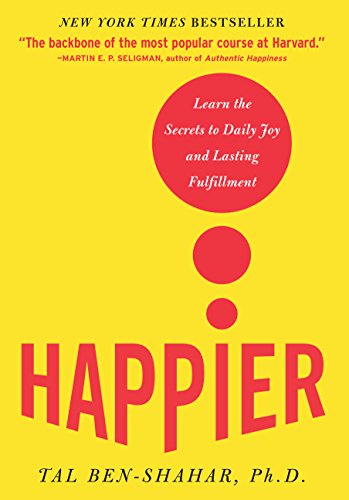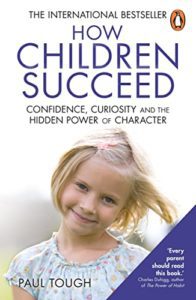 Happier. Book Summary
Happier. Book Summary
Learn the Secrets to Daily Joy and Lasting Fulfillment
Tal Ben-Shahar
McGraw-Hill Education; 1st edition (25 May 2007)
About the author
Tal Ben-Shahar is American and Israeli teacher and writer in the areas of positive psychology and leadership. He has written several best-selling books and, in 2011 co-founded Potentialife with Angus Ridgway, a company that provides leadership programs based on the science of behavioural change to organizations, schools and sports organizations globally.
About the book
“As I see it, the role of positive psychology is to bridge the ivory tower and Main Street, the rigor of academe and the fun of the self-help movement. That, too, is the purpose of this book.”
As a lecturer at Harvard University, Tal Ben-Shahar created the Positive Psychology course, which became the most popular course in Harvard’s history. He has been fascinated with happiness throughout his professional life and recently co-founded Potentialife to “bring the science of flourishing to the world”.
In this book, Ben-Shahar draws on the insights from positive psychology and philosophy and shares with us practical and scientifically researched pathways to become happier in work, life and leisure. The book is packed with practical exercises, so it’s easy to put it into practice straight away.
Let’s jump into our favourite ideas from the book.
Key insights:
Happiness rituals
“For athletes, being a top performer is a deeply held value, and therefore they create rituals around training; for most people, hygiene is a deeply held value, and therefore they create the ritual of brushing their teeth. If we hold our personal happiness as a value and want to become happier, then we need to form rituals around that, too.”
Happy people have rituals. Or you can call them happiness habits.
That also reminds of Sonja Lyubomirsky. In “The How of Happiness” (check out our notes), she writes:
“If we observe genuinely happy people, we shall find that they do not just sit around being contented. They make things happen. They pursue new understandings, seek new achievements, and control their thoughts and feelings. In sum, our intentional, effortful activities have a powerful effect on how happy we are, over and above the effects of our set points and the circumstances in which we find themselves. If an unhappy person wants to experience interest, enthusiasm, contentment, peace, and joy, he or she can make it happen by learning the habits of a happy person.”
To flourish in our lives, we need to establish happiness rituals in our daily and weekly schedules. Everyone can become happier. All we need to do is to TAKE ACTION. Consistently.
Ben-Shahar writes:
“What rituals would make you happier? What would you like to introduce to your life? It could be working out three times a week, meditating for fifteen minutes every morning, watching two movies a month, going on a date with your spouse on Tuesdays, pleasure reading for an hour every other day, and so on. Introduce no more than one or two rituals at a time, and make sure they become habits before you introduce new ones. As Tony Schwartz says, ‘Incremental change is better than ambitious failure. …Success feeds on itself.’”
Take a moment and think about the top ritual you want to bring into your life (you can also check our article 12 Science Backed Ways To Be Happier for some ideas).
Actually, one of the simplest and most effective happiness rituals is expressing gratitude:
“In research done by Robert Emmons and Michael McCullough, those who kept a daily gratitude journal—writing down at least five things for which they were grateful—enjoyed higher levels of emotional and physical well-being. Each night before going to sleep, write down at least five things that made or make you happy—things for which you are grateful. These can be little or big: from a meal that you enjoyed to a meaningful conversation you had with a friend, from a project at work to God.”
We also encourage our boys to say three things they are grateful for today every night before sleep.
Happiness archetypes
“The rat racer’s illusion is that reaching some future destination will bring him lasting happiness; he does not recognize the significance of the journey. The hedonist’s illusion is that only the journey is important. The nihilist, having given up on both the destination and the journey, is disillusioned with life. The rat racer becomes a slave to the future; the hedonist, a slave to the moment; the nihilist, a slave to the past.
Attaining lasting happiness requires that we enjoy the journey on our way toward a destination we deem valuable. Happiness is not about making it to the peak of the mountain nor is it about climbing aimlessly around the mountain; happiness is the experience of climbing toward the peak.”
Ben-Shahar defines happiness as “the overall experience of pleasure and meaning.” Pleasure comes from living in the moment and enjoying our experiences at this moment. It is mainly driven by the positive emotions we experience. Meaning derives from having a sense of purpose that we are accomplishing, creating, assisting or otherwise contributing something of value — whether to a personal relationship, to a career, an educational pursuit or to the community. And to be truly happy, we need to combine pleasure with meaning. That means we need to balance the present and future.
In the book Ben-Shahar outlines four archetypes of happiness decision-making using a hamburger analogy:
- “The Rat Race Archetype”: A rat racer lives for future gain by sacrificing the present. It’s like when you choose to have a tasteless vegetarian burger made with the healthiest ingredients, with future benefits in mind. Ben-Shahar writes that we start playing this game of putting off enjoying life when we start school – we put a lot of effort and work hard for the sake of GOOD GRADES so we can get a degree and decent job later in life. Rat racers are always pushing forward and rarely enjoying what they are doing, which significantly influences their happiness level.
- “The Hedonism Archetype”: Hedonists go for what gives them pleasure now (immediate gratification). That’s all about seeking pleasure and avoiding pain. They rarely set goals and often misinterpret “Carpe diem”. They are mostly doing what feels good in the moment. This often leads to boredom and meaninglessness. This archetype would choose the tasty junk-food burger without regard to long-term consequences.
- “The Nihilism Archetype”: Nihilists focus on past failures to experience happiness. Basically, they’ve lost their spark for life – both present and future. The nihilistic archetype would choose the tasteless, unhealthy burger because they simply do not care.
- “The Happiness Archetype”: That’s our ultimate goal ☺ Here, we realize that it’s not an either/or equation. Happy people believe that the activities they perform today will contribute to a fulfilling future. As Ben-Shahar says: “Happiness is not about making it to the peak of the mountain nor is it about climbing aimlessly around the mountain; happiness is the experience of climbing toward the peak.”
The problem is that our culture nowadays is all about the rat race. When we start realizing that it doesn’t make us any happier, we become more hedonistic. Then, when our hedonistic lifestyle doesn’t bring us happiness, we often join the helpless nihilists camp. And that hurts.
So, take a moment to reflect on where have you/are you spending most of your time? How can you make a shift towards the Happiness Archetype?
A most common example of a rat race archetype is working at a job that is not fulfilling but has promising career opportunities. To move towards the happiness archetype, you can, for example, invest time and effort into finding the work that is a “source of both present and future benefit.”
The Ultimate Currency
“A human being, like a business, makes profits and suffers losses. For a human being, however, the ultimate currency is not money, nor is it any external measure, such as fame, fortune, or power. The ultimate currency for a human being is happiness. Money and fame are subordinate to happiness and have no intrinsic value. The only reason money and fame may be desirable is that having them or the thought of having them could lead to positive emotions or meaning. In themselves, wealth and fame are worthless: there would be no reason to seek fame and fortune if they did not contribute, in some way, toward happiness.”
Happiness is the Ultimate Currency. In the book, Ben-Shahar refers to numerous studies that show little if any relation between wealth and happiness, except for those people at the lowest end of the income range who struggle for basic necessities.
So basically, if you ask yourself why you do anything enough times, eventually you’ll come to one final answer: you want to be happy. Try it – what do you want?
To get wealthy? To get a promotion at work? To have a great family?
Why? Why? Why?
Because you want to be happier.
Once we understand this, we can focus more on the ultimate currency – happiness. We become more aware that all those external things (like wealth, fame, great relationships, fit body etc.) are just a means to an end.
And one more thing to remember here: happiness and success are also related. Happiness creates more success, and success creates more happiness. This is a virtuous circle.
Actually, in the book Ben-Shahar often refers to Nathaniel Branden’s work (check out our notes) and offers his sentence completion technique to put theory into practice:
“If I accept 5 percent more responsibility for my personal happiness – “
Try it 🙂
Setting goals and happiness
“People seeking greater well-being would be well advised to focus on the pursuit of (a) goals involving growth, connection and contribution rather than goals involving money, beauty and popularity; and, (b) goals that are interesting and personally important to them rather than goals they feel forced or pressured to pursue.”
Dr. Kennon Sheldon
Happy people set meaningful and intrinsic goals. But the key to successful goal setting is that we need to enjoy the journey towards our goal. Only in that way we can experience a consistently high level of happiness. If we focus too much on goal attainment only (reaching the goal per se), we are likely to experience just a short-term boost of happiness, followed by hedonic adaptation.
Also, if you set bold goals and get committed to them, you are more likely to succeed:
“In 1879 Thomas Edison announced that he would publicly display the electric lightbulb by December 31, even though all his experiments had, to that point, failed. He threw his knapsack over the brick wall—the numerous challenges that he still faced—and on the last day of that year, there was light. In 1962, when John F. Kennedy declared to the world that the United States was going to land a man on the moon by the end of the decade, some of the metals necessary for the journey had not yet been invented, and the technology required for completing the journey was not available. But he threw his—and NASA’s—knapsack over the brick wall. Though making a verbal commitment, no matter how bold and how inspiring, does not ensure that we reach our destination, it does enhance the likelihood of success.”
Boldness has magic in it – set bold goals and aim high.
And again, Nathaniel Branden comes to mind:
“If I accept 5 percent more responsibility for the attainment of my own goals-“
“If I bring 5 percent more purposefulness to my life today-“
Happiness in relationships
Science says that dedicating time to deep social relationships will boost our happiness in a log-run.
The cornerstones of strong and deep relationships? According to Ben-Shahar, they are unconditional love, pleasure and meaning ☺
Unconditional love means that you are ready to do everything possible to honour, respect and care for the other person:
“Do not do unto another what you would not have them do unto you.”
That’s the Golden Rule.
You can cultivate pleasure and meaning in the relationship through openness, self-disclosure and intimacy in communication. That means you should be ready to open up to one another about pretty much everything. And this intimacy deepens a relationship.
That also reminds of Mihaly Csikszentmihalyi – in Flow (check out the notes) he writes:
“To be enjoyable, a relationship must become more complex. To become more complex, the partners must discover new potentialities in themselves and in each other. To discover these, they must invest attention in each other—so that they can learn what thoughts and feelings, what dreams reside in their partner’s mind. This in itself is a never-ending process, a lifetime’s task. After one begins to really know another person, then many joint adventures become possible: traveling together, reading the same books, raising children, making and realizing plans all become more enjoyable and more meaningful. The specific details are unimportant. Each person must find out which ones are relevant to his or her own situation. What is important is the general principle: that sexuality, like any other aspect of life, can be made enjoyable if we are willing to take control of it, and cultivate it in the direction of greater complexity.”
That’s what you can call “the relationship goals”.
Unconditional love + Meaning + Pleasure
Raising children is also about building the relationship, not controlling or managing. That’s important to remember. Make this relationship complex and grow together. Happier ☺
To conclude, we all have relationships. But here is a question for you to reflect on: do you make them a priority, or do you favour other things? Think about it.
Shift your focus to become happier
“To different minds, the same world is a hell, and a heaven depending on whether they compare it to something better and so feel disappointed and bitter or something worse and so feel relieved and grateful.”
Ralf Waldo Emerson
A change in perception can make a difference. If we focus our minds on negative things, we are less likely to experience joy out of our experience. For example, if we focus on sleepless nights, tantrums, constant mess and lack of time for ourselves, we might feel stressed and miserable on our parenting journey.
But if we shift our attention towards joyful moments like cuddling with a child over a book, watching them smile, enjoying a hot cup of coffee while they sleep, the whole parenting thing suddenly looks completely different.
That again reminds of Mihaly Csikszentmihalyi:
“A person can make himself happy, or miserable, regardless of what is actually happening “outside,” just by changing the contents of consciousness. We all know individuals who can transform hopeless situations into challenges to be overcome, just through the force of their personalities. This ability to persevere despite obstacles and setbacks is the quality people most admire in others, and justly so; it is probably the most important trait not only for succeeding in life, but for enjoying it as well.”
Where do you focus your attention? How can you focus more on positive things rather than negative?
MPS process – how to find your calling
We often choose the work we do, but yet many of us choose jobs and careers that do not provide meaning and pleasure (for whatever reasons). And that makes us feel unhappy. People, who refer to their job as a calling, are much happier and more successful.
How to find your calling? Ben-Shahar offers the “MPS process” – ask yourself three crucial questions:
- What gives me meaning?
- What gives me pleasure?
- What are my strengths?
Write the answers down and find areas of overlap that point you to possible career choices that would make you happy in the long-run.
Happiness boosters
If you are serious about improving your happiness level, you should consider including a couple of happiness activities in your daily rituals. In the book, Ben-Shahar shares several meditations and exercises that would help you boost your happiness level on a day to day basis, moment-by-moment basis. Happiness boosters exercise one of them:
Generate a list of things that bring you joy (“happiness boosters”). You can use the MPS exercise as a starting point. Each month choose 2-3 boosters to focus on, put them into your calendar and create rituals around them.
We know what we need to do to live a happy and fulfilled life. But reading the book would not make you happier. What we need to do it to put this knowledge into practice. When? Today of course!
Action steps for you:
- Go through the MPS process exercise: what gives you meaning? What gives you pleasure? What are your strengths? Reflect on how you can put it into action now ☺
- Think about what made you happy in the past? Reflect on it and appreciate every happy moment in your life.
- Track all your activities for a week: how much time you spend on each of them, how much happiness/pleasure they bring to you. Then rate the activities by how much time you want to spend on each of them. Lastly, think about how could you do more of what brings you joy?
Quotes from the book:









